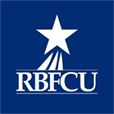RBFCU and RBFCU employees will never initiate a phone call, email or
text message to anyone — members or non-members — asking for your sign-in
information, including usernames, passwords, security questions and answers,
multifactor authentication (MFA) codes, MFA recovery codes and one-time passcodes
(OTP), or other personal information, like account, credit card, debit card or Social
Security numbers. Also, RBFCU employees will never need to sign in to your Online
Banking account on your behalf. If someone contacts you claiming to be an RBFCU
employee and asks you to approve a sign-in request for them, do not respond.
If you receive a suspicious phone call, email or text message, hang up, do not respond to the message, do not click any links, and do not open any attachments. Forward any suspicious emails and text message screenshots to abuse@rbfcu.org,
then delete the message. If you believe your account, username or password has been compromised, you should immediately contact RBFCU at 210-945-3300 for assistance. Additionally, members should monitor their
accounts regularly and report any suspicious transactions.



